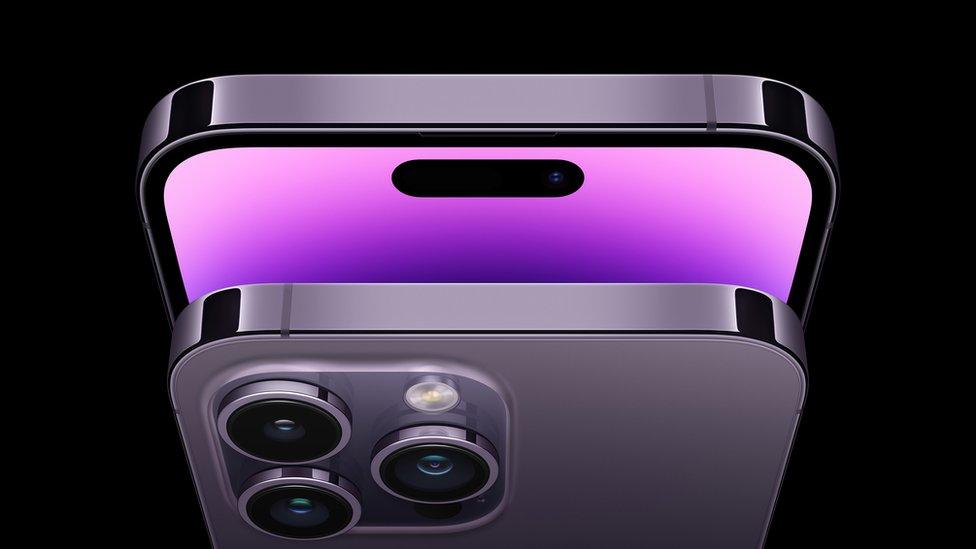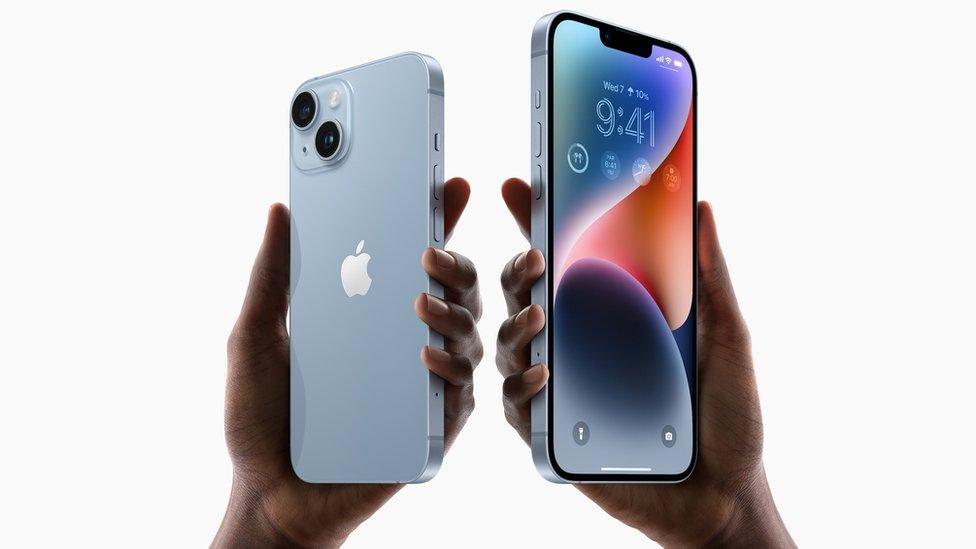Rollercoaster rides trigger emergency calls from new iPhones
- Published

Not driving but screaming
Rollercoasters have triggered some new iPhones to make emergency calls.
According to the Wall Street Journal (WSJ, external), at one US amusement park the plummeting rides activated the phones' crash detection system.
The feature was introduced in the new iPhone 14 and Apple Watch Series 8, Ultra and SE with the latest OS.
Apple told the newspaper the technology is intended to provide "peace of mind" and will continue to improve over time.
Although a new feature on the iPhone, the crash detection system recently demonstrated its utility alerting emergency services to a fatal accident in Nebraska, external.
Google's Pixel phone already has a crash detection system.
Previous reporting by the WSJ testing Apple's system in a variety of collisions - including using the skills of a "demolition derby" driver - did not suggest the system was overly sensitive, external.
However, the newspaper was provided with records of six calls to local emergency services from iPhones whose crash detection system had been triggered while on rides at Kings Island amusement park outside Cincinnati, Ohio.
In a recording of one of the calls obtained by the newspaper , externalan automated message from an iPhone can be heard saying: "The owner of this iPhone was in a severe car crash and is not responding to their phone". The sound of the amusement park is audible in the background.
Drivers have also described instances where the crash detection system has been triggered because phones were dropped while their vehicle was moving.
Allow X content?
This article contains content provided by X. We ask for your permission before anything is loaded, as they may be using cookies and other technologies. You may want to read X’s cookie policy, external and privacy policy, external before accepting. To view this content choose ‘accept and continue’.
False alerts can waste emergency services' time, and cause distress to relatives.
"We are very vigilant about calls. No call doesn't get checked. You get used to calls that are not an emergency, but it's wear and tear on the dispatchers," Melissa Bour, the director of emergency services for Warren County - which received the calls - told the WSJ.
Rollercoaster news site Coaster101 noted that Dollywood, external - a theme park partly owned by country music performer and literacy campaigner Dolly Parton - also warned riders of the risk of false alerts.
Signs placed at entrances to two of the park's most "intense" roller coasters warned riders that Apple watches and other similar devices should not be taken on the ride, Coaster101's reporter noted, as they could trigger the collision detection feature and cause an unintended emergency call.
Allow X content?
This article contains content provided by X. We ask for your permission before anything is loaded, as they may be using cookies and other technologies. You may want to read X’s cookie policy, external and privacy policy, external before accepting. To view this content choose ‘accept and continue’.
Severe crashes
According to Apple, the system is designed to detect severe car crashes - such as front-impact, side-impact and rear-end collisions and rollovers.
The phone uses a number of sensors to detect a crash, including sound, changes in air pressure caused by airbags deploying, motion sensors and GPS.
Following a detected crash, users are given an option to call the emergency services or dismiss the alert.
However, if after 20 seconds the user does not respond, the phone automatically calls emergency services, giving the location of the incident. It also sends a message to a user's emergency contacts if they have them.
Users concerned that a scream-filled trip on a high adrenalin ride might trigger a false alert from their phone can turn the feature off if they wish, or put the phone into airplane mode.
Many amusement parks ask people to leave their phone behind before going on a ride.
The BBC has approached Apple for comment.
Related topics
- Published7 September 2022

- Published6 October 2022
